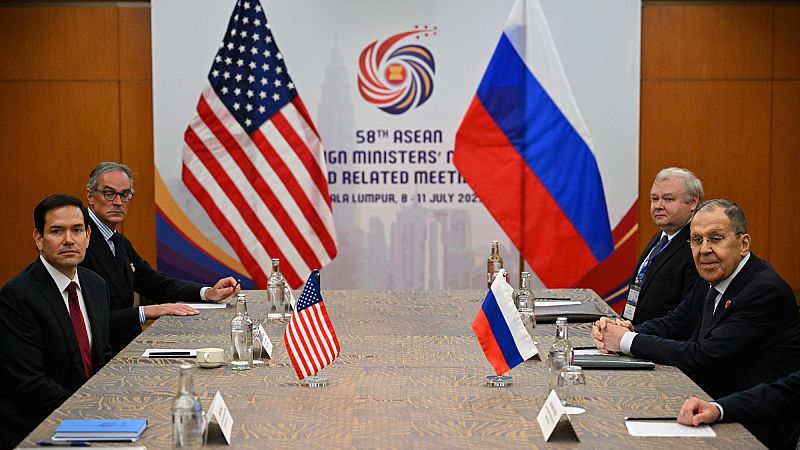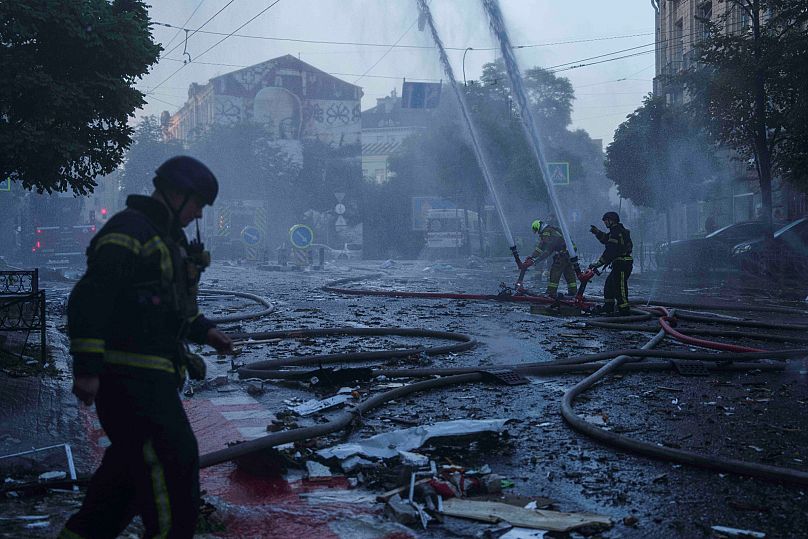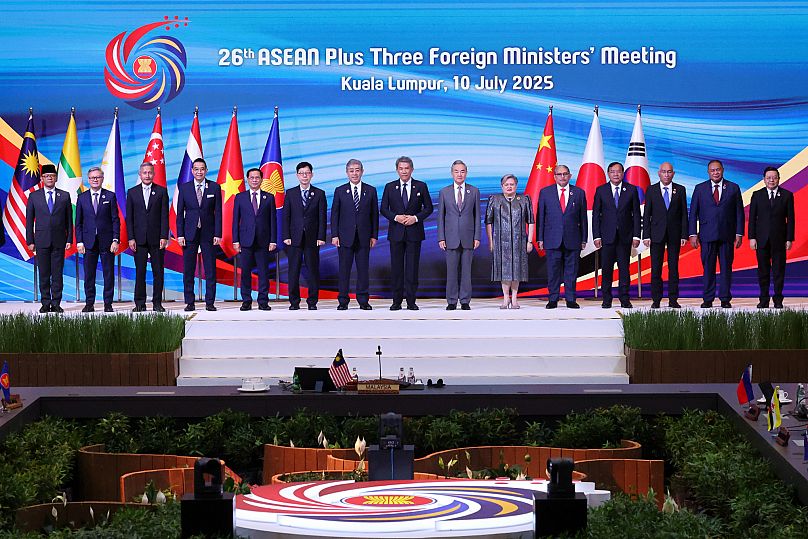
US Secretary of State Marco Rubio said on Thursday that the US and Russia have exchanged new ideas for peace talks regarding Moscow's ongoing all-out war in Ukraine despite "frustration", after he met with his Russian counterpart in Malaysia.
“I echoed what the (US) president (Donald Trump) said, both a disappointment and frustration at the lack of progress," Rubio told reporters following talks with Russian Foreign Minister Sergey Lavrov.
"We need to see a roadmap moving forward about how this (war) can conclude. And then we shared some ideas about what that might look like," he said after the 50-minute meeting.
However, Rubio said the two discussed a "new and different approach" to talks with the Kremlin on how to end its war, now well into its fourth year.
"I wouldn't characterise it as something that guarantees peace, but it’s a concept that, you know, that I'll take back to the president," he explained. However, he did not give any further details about the new proposal.
"We're going to continue to stay involved where we see opportunities to make a difference."

The two held talks in Kuala Lumpur on the sidelines of the annual Association of Southeast Asian Nations (ASEAN) forum, which brings together the 10 ASEAN member states and their most important diplomatic partners, including Russia, China, Japan, South Korea, European nations and the US.
The meeting was their second encounter since Rubio took office, although they have spoken by phone several times.
Their first meeting took place in February in the Saudi Arabian capital Riyadh, as the Trump administration sought to test Russia and Ukraine on their willingness to make peace.
Thursday's meeting took place shortly after the US resumed some shipments of defensive weapons to Ukraine, following a pause that was ostensibly for the Pentagon to review domestic munitions stocks, which was welcomed in Moscow.
The resumption comes as Russia engages in escalating aerial attacks on Ukraine, and Trump has become increasingly frustrated with Russian President Vladimir Putin.
Diplomatic push and the threat of tariffs
Rubio was also meeting with other foreign ministers, including many whose countries face US tariffs set to take effect on 1 August.
Rubio sought to assuage concerns as he held group talks with ASEAN foreign ministers.
"The Indo-Pacific, the region, remains a focal point of US foreign policy," he said.
"When I hear in the news that perhaps the United States or the world might be distracted by events in other parts of the planet, I would say distraction is impossible, because it is our strong view and the reality that this century and the story of next 50 years will largely be written here in this region."
Trump notified several countries on Monday and Wednesday that they would face higher tariffs if they did not make trade deals with the US.

Among them are eight of ASEAN's 10 members.
US State Department officials said tariffs and trade won't be Rubio's focus during the meetings, which Trump’s Republican administration hopes will prioritise maritime safety and security in the South China Sea, where Beijing has become increasingly tense toward its smaller neighbours, as well as combating transnational crime.
However, Rubio may be hard-pressed to avoid the tariff issue that has vexed some of Washington's closest allies and partners in Asia, including Japan, South Korea and most members of ASEAN, which Trump says would face 25% tariffs if no deal is reached.
Rubio met earlier on Thursday with Malaysia’s Prime Minister Anwar Ibrahim, who has warned that global trade is being weaponised to coerce weaker nations.
Anwar urged ASEAN to strengthen regional trade and reduce reliance on external powers.







